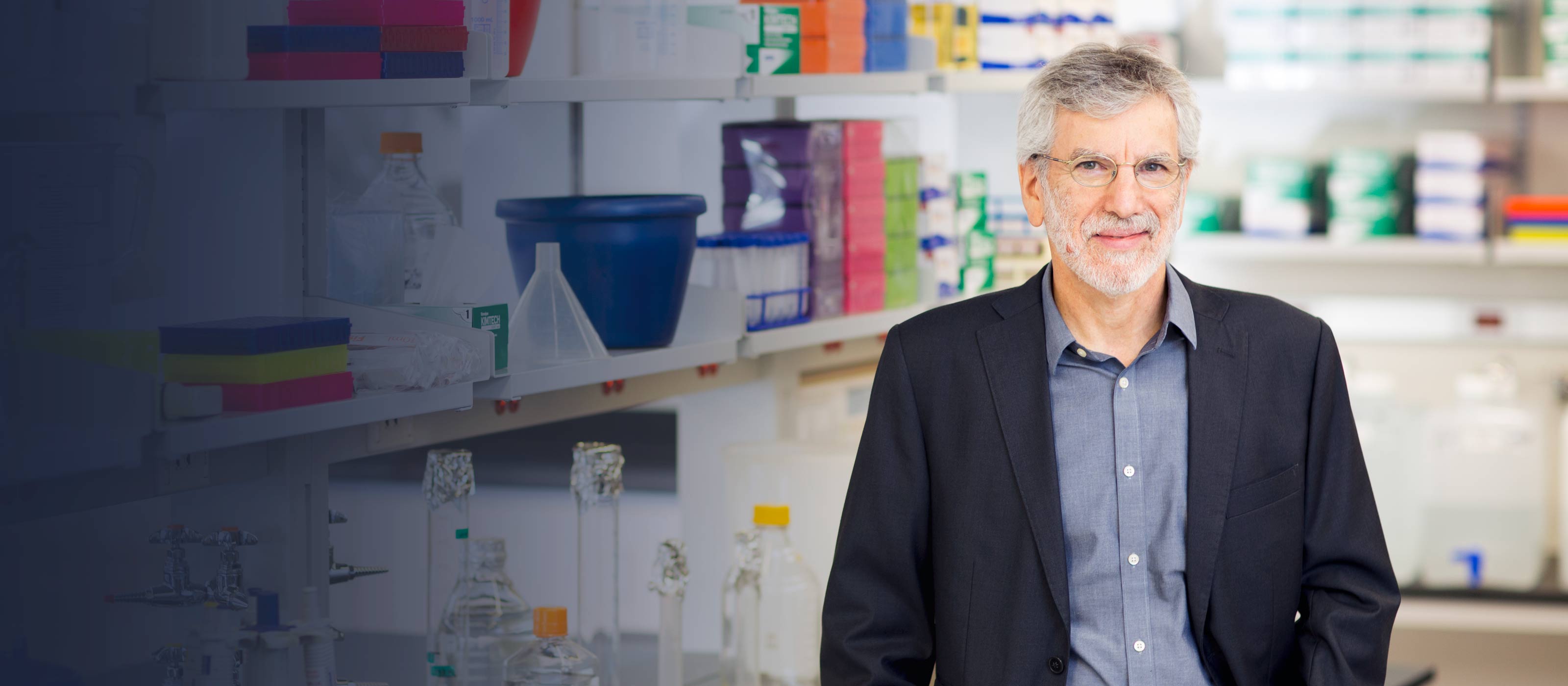Main content

Associate Dean for Collaborative Science
Dr. Louis A. Schneider Professor of Molecular Pathology, Department of Pathology
Professor, Department of Microbiology
The phenotype of a mammalian cell is modulated in response to physiological signals partly through the differential activation of specific gene expression. One way cells detect environmental cues and cell-cell interactions is through binding of extracellular ligands to cell-surface receptors. Responses to cell surface binding of cytokines, a diverse family of secreted polypeptides regulating cellular growth and differentiation, lead to profound alterations in the functions and metabolic profile of susceptible cells. We focus on the mechanisms of action of growth inhibitory growth stimulatory interferons (IFNs) and inflammatory cytokines.The immediate response to IFNs and many inflammatory cytokines is mediated by transcriptional activation of discrete sets of stimulated genes through the action of transcription factors of the STAT family.
Our early work involved purification and cloning of the transcription factor complex regulating IFN stimulated genes, a complex of 3 distinct proteins that are regulated by tyrosine phosphorylation. Cytokine-induced tyrosine phosphorylation causes this multimeric factor to assemble and translocate to the nucleus where it is recruited to chromatin to active gene expression. We study the mechanisms of subunit assembly, the kinases responsible for regulated tyrosine phosphorylation, the signals coupling between IFN receptors and the kinase/transcription factor complex, and the transcriptional mechanisms that lead to a robust but transient increase in target gene expression. We have recently defined a transcriptional elongation step which is critical for induced gene expression and depends on the balance between protein lysine acetylation and deacetylation.
Additionally, we are investigating the normal physiological relevance of these signaling pathways in animal models by gene targeting. We are studying the phenotypes of mutant mice (knockouts, conditional knockouts, and altered function knockins) to determine the role for cytokine signaling pathways in development, immune responses, defense against pathogens, and malignancy. This has enabled us to establish several disease models that can now be studied at the molecular level.
An important regulatory element of the innate immune response is the ability to respond to virus infection by production of IFN. We have defined an essential transcription factor for induction of members of the IFN-alpha gene family. This protein, IRF7, is specifically induced in stimulated cells through a feed-forward regulatory loop, and it becomes phosphorylated specifically in virus-infected cells, causing it to translocate to the nucleus, bind DNA, and activate transcription. We have defined the structure/function relationships for its different activities and are pursuing the role for this protein in responses to a variety of infectious agents. We are also exploring a novel IRF7-independent pathway for IFN induction that regulates a subset of inflammatory cytokines.Another protein of current interest is STAT3, a transcription factor responsible for gene expression in response to many cytokines, especially those of the IL6 family. Because disruption of the stat3 gene is embryonic lethal phenotype, we use conditional mutant models to study its function. During embryogenesis, STAT3 is necessary for normal maintenance and function of the placenta. In the hematopoietic system, STAT3 modulates myelopoiesis and promotes the action of oncogenic Ras during myeloproliferative disease. Moreover, we have defined a novel function of STAT3 in mitochondria, where it modulates oxidative phosphorylation and the production of reactive oxygen species, conferring a metabolic growth and survival advantage to transformed cells. We are currently exploring the biochemical basis of mitochondrial STAT3 function as a potentially targetable cancer cell vulnerability.
Dr. Louis A. Schneider Professor of Molecular Pathology, Department of Pathology at NYU Grossman School of Medicine
Associate Dean for Collaborative Science
Mitochondrial communications. 2024; 2:1-13
Journal of clinical investigation. 2023 Aug 01; 133(15):
Bio-protocol. 2022 Jun 05; 12(11):e4438
Proceedings of the National Academy of Sciences of the United States of America (PNAS). 2021 Sep 14; 118(37):
Molecular & cellular biology. 2021 08 24; 41(9):e0008521
Molecular & cellular biology. 2021 Jun 14; (pp(MCB0008521):MCB0008521
Molecular oncology. 2021 May; 15(5):1432-1449